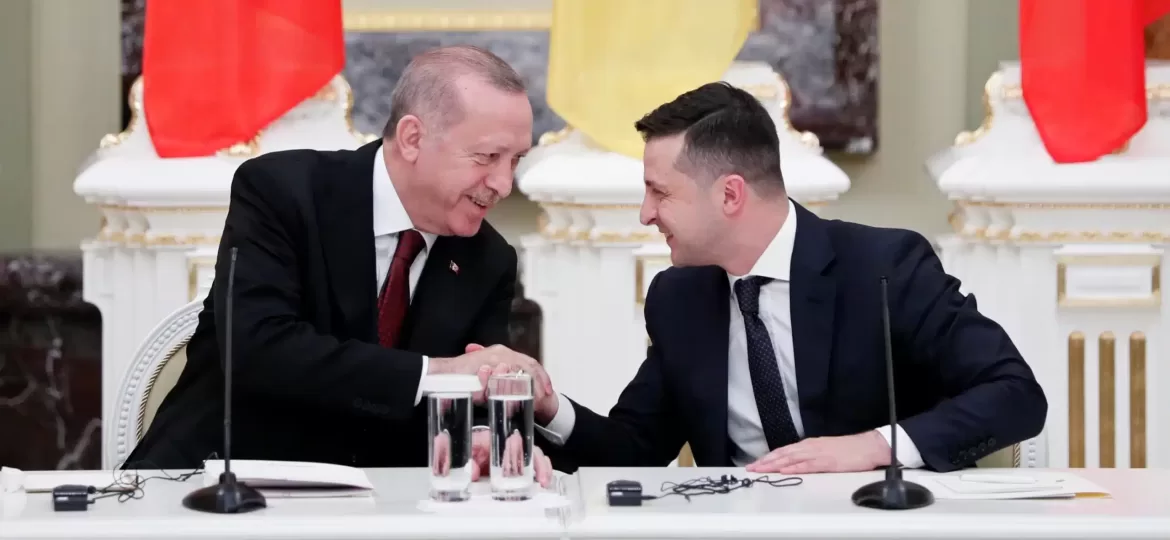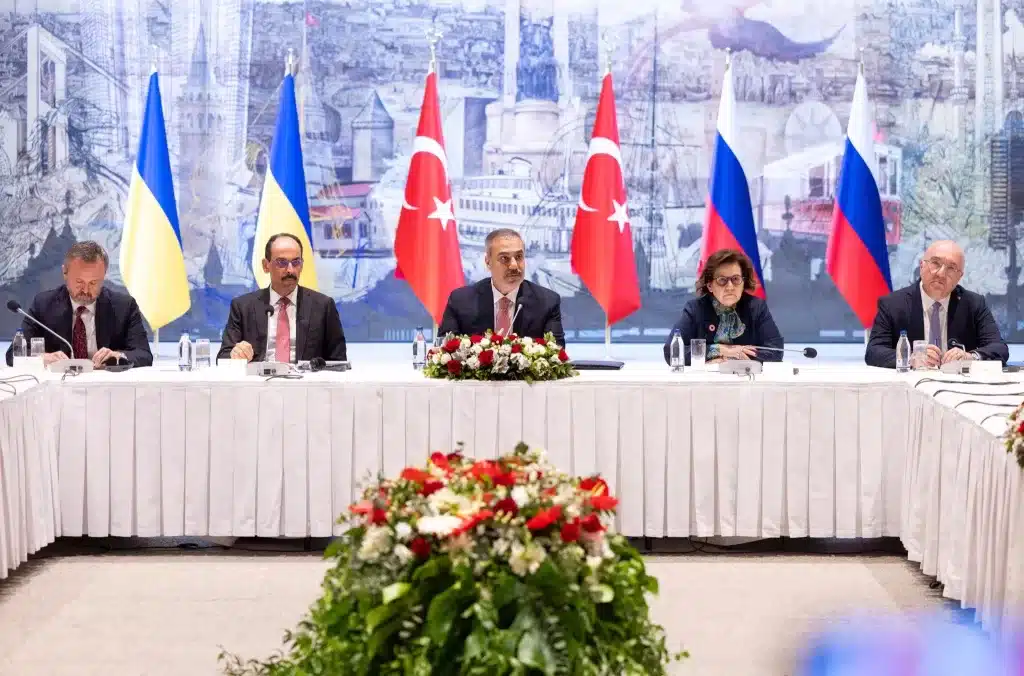
Introduction
Türkiye and Ukraine, two essential neighbors along the Black Sea, share not only geographical proximity but also a growing legacy of economic and diplomatic cooperation. In today’s fragile global environment, strengthening bilateral relations based on mutual support, logistical integration, and shared values has become more vital than ever.
A New Era of Logistics Cooperation
In the wake of the challenges brought on by conflict, Ukraine’s logistics infrastructure has faced serious setbacks. Turkey has responded with constructive initiatives to modernize transport networks, enhance port functionality, and ensure uninterrupted supply chains.
This collaboration extends beyond commercial intent—it includes the effective delivery of humanitarian aid and contributes to Ukraine’s long-term recovery and economic stabilization.
Expanding Bilateral Trade Volumes
As of 2024, trade volume between Türkiye and Ukraine stands at approximately $6.2 billion USD, with ambitions to exceed $10 billion in the near future. Sectors such as steel, agriculture, construction materials, and textile manufacturing have shown significant potential for joint growth.
Turkish steel and ready-wear products, for instance, are gaining recognition across Ukrainian markets, while Ukraine continues to be a strategic supplier of grain and agricultural products to Turkey.
Emphasizing Peace Over Conflict
The destructive nature of war affects all nations in the region—not just those directly involved. It is, therefore, essential to prioritize peace, cooperation, and mutual growth. As a Turkish proverb wisely says, “A neighbor needs even the ashes of another” — implying that even the smallest form of support between neighbors can be invaluable.
No country can truly prosper while its neighbor suffers. The sustainable path forward lies not in confrontation, but in unity, diplomacy, and economic collaboration.
Strategic Recommendations for Strengthening Relations
- Diversify Trade Channels
New opportunities should be explored in the fields of renewable energy, agriculture, and logistics technologies. - Strengthen Infrastructure Links
Joint investments in transportation hubs, rail networks, and seaports can drastically improve trade efficiency. - Encourage Diplomatic Dialogue
Regular bilateral forums and trade summits should be institutionalized to sustain healthy communication. - Foster Humanitarian Coordination
Collaborative efforts in aid distribution can elevate Turkey’s role in Ukraine’s reconstruction process.
Stabilizing Trade Through Experienced Firms
To maintain transparency and efficiency, manufacturers should avoid direct exports, instead working through experienced and independent trade companies. This policy ensures:
- Fair pricing mechanisms
- Verified and traceable transactions
- Professionalism in cross-border operations
Furthermore, new trade companies must meet high standards—such as a minimum of 3 years in operation—to qualify for international partnerships. This protects both economies from informal structures and strengthens regulatory oversight.
A Call for Balanced Financial Flows
Currently, trade dynamics favor one-sided capital movement. By empowering certified traders and creating stronger financial feedback loops between both countries, money will circulate more evenly within local markets.
Major corporations—including Tüpraş, Gazprom, and Rosneft—should lead this initiative by conducting all sales through trusted intermediaries. This will stimulate employment, boost local consumption, and reinforce economic harmony.
Türkiye and Ukraine have the tools, the history, and the shared vision to build a peaceful, prosperous, and resilient future together. Through logistics cooperation, fair trade practices, and diplomatic engagement, they can become a regional model of unity.
Let us remember: No nation becomes stronger by isolating its neighbors. Together, Turkey and Ukraine can rise—not through war, but through wisdom, solidarity, and mutual respect.
In an era shaped by uncertainty and transformation, the alliance between Türkiye and Ukraine emerges not only as a matter of trade—but as a symbol of hope, resilience, and regional responsibility. Both nations stand at a crossroads: one that demands not conflict, but connection. One that favors not isolation, but cooperation.
Turkey, long regarded as a strategic gateway between East and West, and Ukraine, a country rich in resources and human potential, share more than borders—they share destinies shaped by mutual respect and neighborly values.
Trade as a Catalyst for Peace
Trade is more than an economic transaction. It is a gesture of trust. Every shipment between Türkiye and Ukraine carries not just goods, but goodwill. As the two countries continue to deepen their commercial ties, a new model of neighborly diplomacy is taking root—one where economic growth and political stability move hand in hand.
The proverb “a neighbor needs even the ashes of another” reflects a deep truth: no nation prospers in solitude. Turkey’s consistent efforts to provide logistical and diplomatic support to Ukraine reflect a commitment not only to commerce but to community.

Current Trade Landscape (Estimated, 2025)
| Sector | Primary Direction | Estimated Annual Volume | Key Note |
|---|---|---|---|
| Agricultural Commodities | Ukraine → Turkey | 4.8 million tons | Includes grain, sunflower oil, cereals |
| Steel & Construction | Turkey → Ukraine | 1.3 million tons | For reconstruction and infrastructure projects |
| Machinery & Tools | Turkey → Ukraine | 700,000 units | Mainly heavy equipment and generators |
| Fertilizers & Chemicals | Turkey → Ukraine | 120,000 tons | For food production and industry |
| Textiles & Apparel | Turkey → Ukraine | 85,000 tons | Includes ready-wear and technical garments |
These volumes represent more than trade—they represent lifelines, rebuilding efforts, and forward-looking cooperation.
The Role of Trusted Trade Companies
For trade to remain effective and resilient, it must be handled by professionals who understand international dynamics and uphold transparency. Here, foreign trade companies like ATABAŞ GRUP play a critical role.
With deep experience in multi-sector exports, certified compliance structures, and a reputation built on integrity, companies like ATABAŞ GRUP ensure that:
- Operations flow without delay or legal risk
- Both Ukrainian and Turkish producers access new markets
- Trade adapts quickly to changing regional conditions
- Contracts are honored with fairness and foresight
Their role is not transactional—it is transformational.
Logistics as the Backbone of Recovery
Ukraine’s need for fast, efficient, and secure transport has created new lanes of cooperation. Turkish ports, freight corridors, and bonded warehousing systems are being restructured to serve Ukrainian exporters and importers with greater agility.
Turkey provides:
- Port-to-port shipment from Mersin, Samsun, and Ambarlı
- Overland logistics reaching Central Europe through the Balkans
- Emergency warehousing and customs management for high-priority goods
- Pre-inspection and SGS-certified loading for security and speed
These efforts not only support trade but stabilize the region.
A Diplomatic Message: Unity Over Division
Turkey does not see Ukraine through the lens of conflict—but through the lens of opportunity. The opportunity to support a neighbor. The opportunity to rebuild what war attempts to destroy. And most importantly, the opportunity to show the world that when neighbors stand together, no force can bring them down.
War may shake foundations. But unity builds empires. And trade, when built on mutual respect and trust, becomes the language of lasting peace.
Recommendations
- Restrict unregulated trade attempts: Only companies with proven international history should be authorized to conduct bilateral exports.
- Encourage financial flow symmetry: Trade should bring economic value to both nations equally, not disproportionately.
- Develop joint trade zones: Establish bonded logistics parks in key ports for Ukraine–Turkey goods.
- Empower diplomatic and commercial synergy: Governments must trust and promote verified companies like ATABAŞ GRUP to manage high-volume, high-stakes operations.
Conclusion
The path ahead for Turkey and Ukraine is clear: more cooperation, not less. More trade, not tariffs. More diplomacy, not division.
In a world searching for models of peace through commerce, Turkey and Ukraine have the chance to lead—not with force, but with friendship. Not with competition, but with collective growth.
Let this era be remembered not for what separated us—but for the bridges we chose to build.

